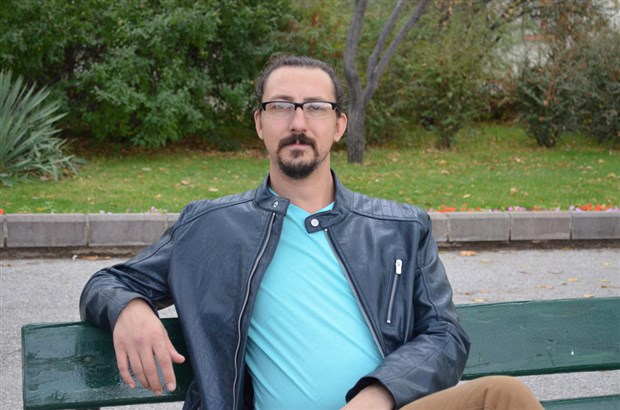Name: James Marcuzzo
Home Country: USA
Department: Political Science/Master’s Program
What do you like best about Turkey?
Turkey is really fascinating because of its duality. For example, I like the fact that Ankara is so easy to travel around in because of its modern design. I can go out and party with friends and enjoy the feeling of being in a big capital city. İstanbul, on the other hand, is also an amazing place, with its crowded city streets and architecture from old civilizations. As a traveler, this is a place that I had always wanted to visit. Also, as a food lover, I really appreciate the food culture here.
Are there any similarities between your culture and ours?
Yes, of course. A lot of the people I’ve met on campus are a lot like my friends back home. Everyone is so generous and friendly. But beyond that, we’re all people who are just trying to live our lives. There are more similarities than differences.
If you could recommend a song or a book that you think people should really listen to or read, what would it be?
I don’t spend much time reading fiction, but I’m a sucker for Dan Brown’s books. It’s complete literary fluff, but he does an awesome job of incorporating history, art and culture into a fast-paced mystery story. In fact, in his most recent book, “Inferno,” he specifically addresses rampant population growth and its destabilizing effects on human culture, which is something that we are obviously witnessing currently in our global society. The latter portion of the story takes place in Istanbul.
What places have you visited in Turkey?
So far, I’ve attempted to travel around the city here. I’ve been to İstanbul and Antalya. İstanbul is fantastic—awesome architecture, cool history—and obviously very different from Ankara.
Why did you choose to study in Turkey?
Back home I have a professor, Dr. Ramazan Kılınç, who is from Turkey and who graduated from Bilkent. He set up a joint program between our universities. My master’s degree is in political science, so this is a great place to study, because of both the surrounding political environment and the internal structure of Turkish politics.

